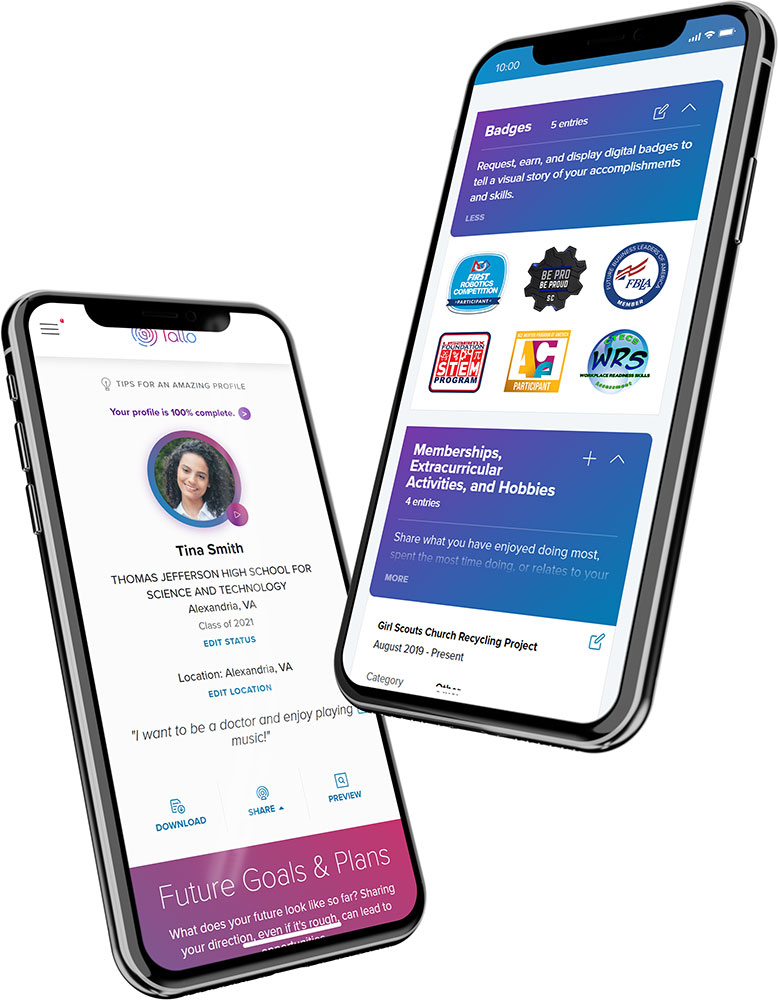A closer look at how manufacturers can use digital badges to recruit smarter, and why doing so is the future of recruiting.
In the past, the pathways for manufacturers to recruit their workforce were fairly straightforward: either through connections with high school vocational programs or, as is the case with companies like Boeing, by sending employees into classrooms to discuss potential career paths.
But what about all the students who want to pursue a career in manufacturing, but don’t have the option of enrolling in a career and technical education program or speaking with someone in the industry? And how should manufacturers best gauge the qualifications of applicants who express interest in manufacturing careers in the aerospace industry or automotive technology, but may not have the appropriate skill sets to succeed in these roles?
In this digital age, when almost every aspect of the recruitment process has gone virtual, manufacturers need to embrace a recruiting approach that is technologically enabled, and the best way to do this is through digital badges.
Similar to traditional certificates awarded upon completion of a course or workshop, digital badges are a trustworthy and verifiable way for students to document competitions they have participated in, academic or professional accomplishments they have achieved and industry-recognized credentials they have earned.
Digital badges give students the opportunity to showcase their skills and market themselves to potential employers across a variety of industries. The entire process is accessed and verified online. Manufacturers, in turn, benefit from a wider talent pool to choose from and the knowledge that their recruiting efforts won’t be wasted on courting applicants without the required skills and certifications.
Once students earn badges, they are incentivized to earn more credentials and understand that they are in charge of their digital transcripts. Badges can also focus on skill sets to highlight specializations within broader programs and to highlight complements to those programs, such as workplace readiness skills. Using badges like this helps to make candidates more employable and more unique.
This is especially relevant as the pandemic continues to dictate access to opportunities such as in-person internships, apprenticeships and job-shadowing. Previously, manufacturers could build a network of potential candidates by offering these options or recruiting from programs that do, but that is no longer the case.

Even after the crisis generated by the pandemic has passed, the possibilities of virtual recruitment, and the associated badges, will enable employers to recruit smarter and be more competitive in their search for the ideal candidate.
The benefits of digital badges go beyond what they can do for individual companies. Manufacturers are the backbone of our economy, but a growing skills gap could leave as many as 2.4 million positions unfilled by 2028 if left unaddressed. To fill these critical positions, recruiters need to bring awareness of career opportunities to students earlier than ever, starting in high school or even middle school. Advertising the multitude of available manufacturing jobs through platforms geared toward younger candidates will encourage interest in this sector and help bridge the skills gap currently plaguing the industry.
Partnering with platforms that offer digital badges and publicizing the badges necessary to qualify for open positions will give manufacturers an added advantage to address this growing problem. But this shouldn’t just be a passive process, as manufacturers can provide input on the skills and certifications they are looking for across different sectors and help guide the process of developing courses or programs that students must complete to be competitive.
What was once a traditional industry has become the key to innovation and advancement in our society, and as such, manufacturers need to be aware of and utilizing the most current tools for recruiting the next generation of workers. It is no longer sufficient to maintain a wait-and-see attitude that relies only on career and technical schools and corporate-sponsored programs to prepare students for a manufacturing career.
The challenges of the pandemic have highlighted critical skills gaps that must be filled, and the best way for manufacturers to do so is through the implementation of digital badges. These clear and reputable indicators of a student’s achievements can help guide recruiters to the right candidates faster, and being involved in the creation of relevant badges or career pathways will ensure that the skills gap shrinks as qualified applicants fill these vital positions.
The digital wave has touched every aspect of our lives, especially in the wake of Covid-19, and it would be shortsighted to imagine that will change after the danger has passed. Manufacturers should take this golden opportunity to revolutionize their hiring practices and come out on the other side of the pandemic stronger, more resilient and ready to face the future.

Casey Welch is the CEO of Tallo, a virtual workforce platform that provides a means for talent and talent seekers to overcome traditional geographic and socioeconomic boundaries and assists in the development, retention, reskilling, and attraction of talent.

Ken Potthoff has worked in education for the past 25 years, which includes work in standards and assessment, curriculum development, project management, and the teaching of writing, literature, and film studies at the university level in the United States and in Shanghai, China. He was an instructional designer with the Career and Technical Education Consortium of States (CTECS) for 10 years and became the Deputy Executive Director of CTECS in 2012.
Scott Ellyson, CEO of East West Manufacturing, brings decades of global manufacturing and supply chain leadership to the conversation. In this episode, he shares practical insights on scaling operations, navigating complexity, and building resilient manufacturing networks in an increasingly connected world.